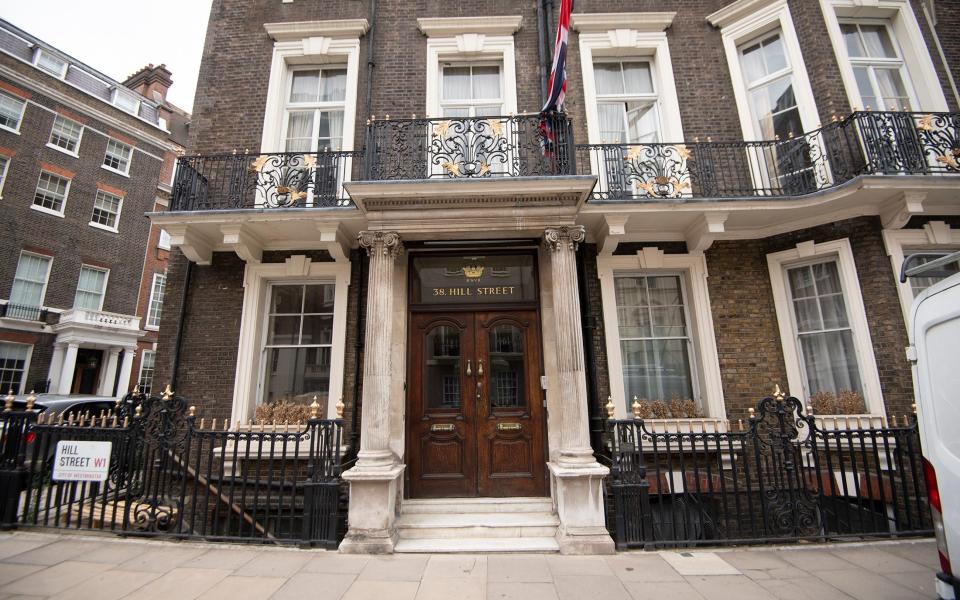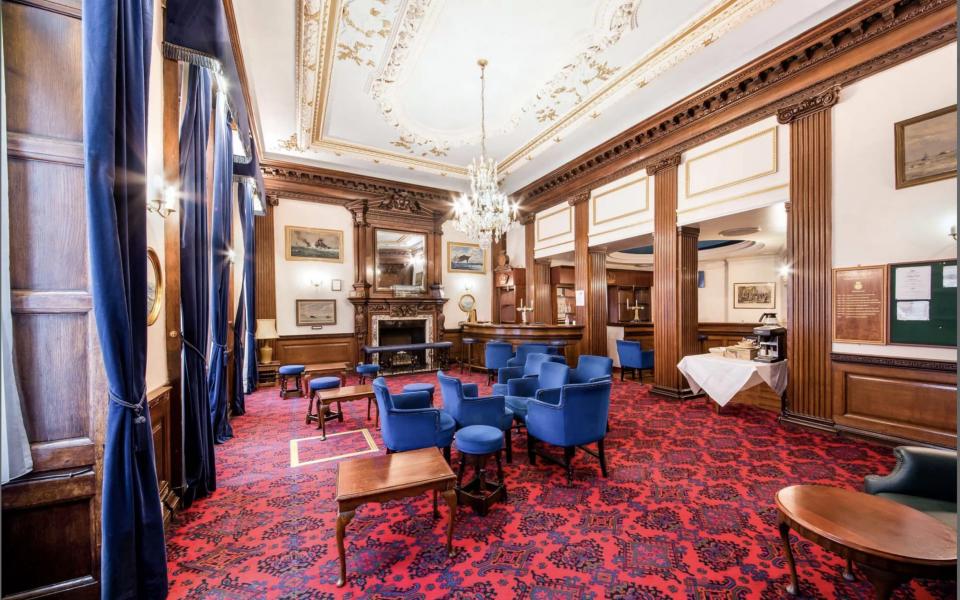Millions from Naval Club Mayfair house sale go to members instead of charities

Since the end of the Second World War the well-appointed surroundings of The Naval Club at 38 Hill Street, Mayfair, London, have provided a relaxing venue for those with maritime connections to meet and socialise.
The grand Georgian town house was also designated as a national war memorial to commemorate thousands of brave volunteers who paid the ultimate price while serving with the Royal Naval Reserve (RNR).
So when the property was sold last November to a Middle East-based billionaire, with plans to convert it into a private residence, there was a palpable sense of loss within naval circles.
But that regret has since turned to anger with questions being raised over the handling of the £27.5 million sale and concern over the way the proceeds have been distributed.
Critics claim there was no consultation with past Royal Naval Volunteer Reserve (RNVR) members and argue that any money raised ought to have been distributed among maritime charities in accordance with wishes of the club’s founders in 1946.
Instead, at a meeting held in April last year, the rules were changed, meaning a large portion of the profits from the sale can now be distributed between the existing 860 members.

The 27-bedroom property in one of Mayfair’s smartest locations, dates back to 1748 and at one stage belonged to the family of William Pitt the Younger, the 19th century prime minister.
It remained in private hands until the outbreak of the Second World War, when it was requisitioned by the Auxiliary Territorial Service.
In 1946, 38 Hill Street was purchased by the RNVR Officers’ Association, with help from the Astor family, in order to provide a social venue and home from home for members in the heart of London.
At one point, the private club boasted more than 15,000 members – including Lord Mountbatten – and it regularly hosted members of the Royal Family, including The Queen, the Duke of Edinburgh and the Prince of Wales.
But last year, with membership falling and income dwindling in the wake of the pandemic, the difficult decision was made by the Naval Club Council to go into liquidation and sell the freehold of the building.
The property went on the market for £35 million, with the agent suggesting it would make an ideal luxury boutique hotel or even an international embassy.
There was reportedly interest from a Russian oligarch, but it is understood it was eventually sold to a Saudi billionaire, who has plans to convert it into an opulent private residence.

The remaining 860 members of the Naval Club were transferred to the Army and Navy Club situated on Pall Mall, as was the RNVR Roll of Honour, listing the names of those who died defending Britain at sea during the world wars.
But a row has since erupted with critics claiming crucial decisions about the future of the club were made during the “fog of the pandemic” with little wider consultation.
A Memorandum of Association, drafted when the club was founded, stated that in the event of a liquidation any surplus proceeds would be given to like-minded organisations or maritime charities.
But in a vote last April – involving just 490 of the 860 current members – the Memorandum of Association was amended.
While around £6.5 million has been distributed to maritime charities, the existing members will now enjoy a windfall from the remaining surplus.
Confounding original intentions
Sub Lt (A) Michael Bonham Cozens of the RNVR told The Telegraph that the Naval Club Council had effectively confounded the original intentions of the club’s founders.
He said: “Instead of sale proceeds being distributed to like-minded institutions or appropriate charities, as was originally intended, the lion’s share is being paid as a windfall to one generation of members.”
Lt Commander Malcolm Graves from the RNR said he believed the sale of the building amounted to “sacrilege”.
He said: “I was outraged when I discovered the Naval Club’s Mayfair freehold was being sold, without reference to the Royal Naval Reserve and related UK maritime organisations.
“I felt, since the Naval Club was dedicated to the memory of Royal Naval Volunteer Reserve officers, it was a sacrilege, especially as the very building itself is a war memorial to the 6,200 RNVR personnel who were lost during the Second World War. The roll of honour was housed there, as well as valuable artefacts.
“There has been scant regard given by the board to the importance of the war memorial at 38 Hill Street, which was intended as a meeting place for future generations of RNVR, RNR and all those sharing a similar ethos but this has now been denied, without consultation.
“The board has used the excuse of falling income, while making decisions, during the fog of the pandemic.
“Furthermore, their intention is to divert the lion’s share of surplus sale proceeds away from like-minded organisations and into the pockets of a current generation of members. It all feels very wrong.”

A spokesman for the liquidators, appointed to handle the insolvency, said: “RNVR Officers’ Association Limited formally entered solvent liquidation earlier this year.
“The proceeds from the sale of the club’s former premises, in accordance with resolutions passed in April 2021 by over 99 per cent of the membership, have gone towards integration within another club and donations to various charities connected to the RNVR.
“The remaining funds will be distributed to the members in due course. The appointed liquidators have received a number of queries relating to the winding-up, however, these queries are from non-members of RNVR who have no legitimate interest in the winding-up process.”

 Yahoo News
Yahoo News 